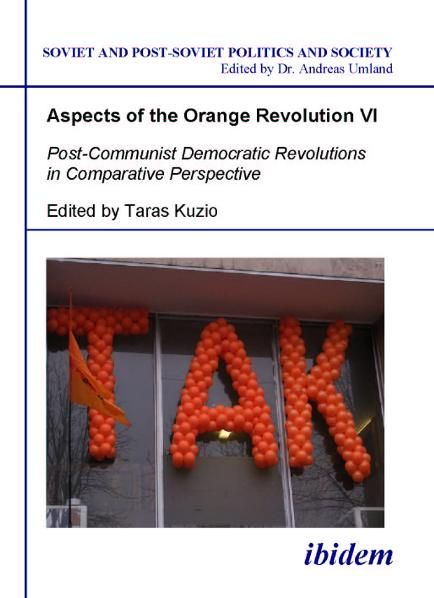
Aspects of the Orange Revolution VI - Post-Communist Democratic Revolutions in Comparative Perspective
-
- Englisch ausgewählt
34,90 €
inkl. MwSt,
Lieferung nach Hause
Beschreibung
Details
Einband
Taschenbuch
Erscheinungsdatum
22.11.2007
Herausgeber
Andreas Umland + weitereVerlag
IbidemSeitenzahl
226
Maße (L/B/H)
21,2/14,6/1,3 cm
Gewicht
302 g
Auflage
1. Auflage
Sprache
Englisch
ISBN
978-3-89821-820-7
The volume represents a breakthrough in our understanding of why and how democratic revolutions take place in the post-communist world. It provides an integrated analysis of why such upheavals succeed in some, but fail in other states. The contributions point to, among other issues, why the post-revolutionary breakthroughs in Serbia, Ukraine and Kyrgyzstan have encountered obstacles, the ousted regime was never fully defeated and its representatives were able to launch counter-revolutions, as well as why, in Serbia and Ukraine, the political forces of the ousted regimes have returned to power in free elections held after democratic revolutions.
Post-Communist Democratic Revolutions in Comparative Perspective will be important reading for scholars and policy makers alike.
Unsere Kundinnen und Kunden meinen
Verfassen Sie die erste Bewertung zu diesem Artikel
Helfen Sie anderen Kund*innen durch Ihre Meinung
Kurze Frage zu unserer Seite
Vielen Dank für dein Feedback
Wir nutzen dein Feedback, um unsere Produktseiten zu verbessern. Bitte habe Verständnis, dass wir dir keine Rückmeldung geben können. Falls du Kontakt mit uns aufnehmen möchtest, kannst du dich aber gerne an unseren Kund*innenservice wenden.
zum Kundenservice